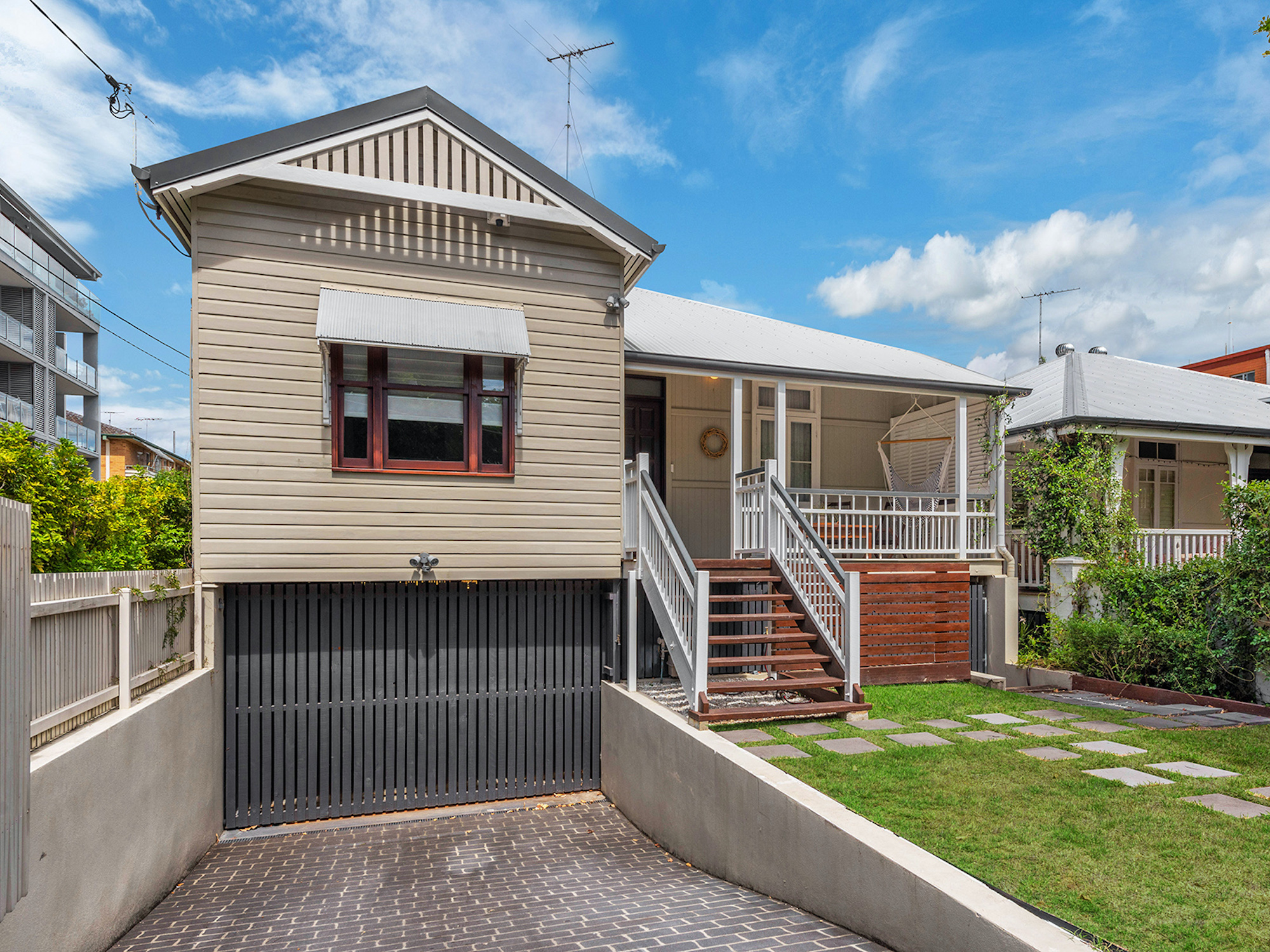While much of the impact of COVID-19 is being felt in Victoria, the crisis is still having an effect across the country, including in the residential rental market.
There are discrepancies between rules in different states and territories, impacting what tenants can and can’t do at this time. Here’s a state-by-state look at what each government is now permitting right now and what it means for tenants.
Victoria
In Victoria, currently the worst impacted state, you are well protected as a tenant if you’re suffering coronavirus-related financial hardship. Not only are you shielded from eviction until 31 December 2020, your landlord can’t put up your rent, either.

Victoria has been hardest hit by the pandemic. Picture: Getty
Tenants struggling to make ends meet need to negotiate with their landlord “in good faith” to put a more manageable rental arrangement in place. This can include a complete waiver, reduction or deferral.
If you can negotiate a reduction in your rent, you may also be eligible for a one-off COVID-19 Rent Relief Grant, up to $3000, paid directly to your landlord.
When it comes to deferrals, check how and when you will need to repay the rent to avoid the shock of a sizeable lump sum cost.
Some tenants may choose to break their lease and move to a cheaper home, share house or even back home. This is much easier under Victorian rules, with many associated penalties waived.
Moving house is allowed under current restrictions, irrespective of how far you need to travel, i.e. the Melbourne 5km rule doesn’t apply.
Removal companies are permitted businesses, so you can get professional help, but if you’re doing it yourself, only one friend or family member who doesn’t live with you can pitch in.
Of course, moving home normally means opening your home for prospective new tenants or even buyers if the landlord decides to sell.
At the moment, open for inspections and live auctions must be done virtually in Melbourne, where stage four restrictions are in place, so there won’t be anyone trekking through your place.
In regional Victoria, now under stage three, would-be buyers and tenants have to view properties online and schedule a private, socially-distanced walkthrough, but auctions are online.
Given the level of community transmission in Victoria, if you need to move across state borders, you will most likely have to get a travel exemption.
New South Wales
Until 14 October 2020, tenants in the nation’s largest state can’t be evicted if they meet financial hardship requirements. But that doesn’t mean you can ignore the problem.
If you can’t make rent, you need to be open with your landlord and work together to find a solution.
The Office of Fair Trade provides a step-by-step guide for negotiating a rent reduction, waiver or deferral, including template letters.
Unlike some other states, New South Wales doesn’t currently provide any government assistance by way of a grant for struggling renters.
While the government is keeping a close eye on cases in Sydney, there’s currently no restrictions on residents travelling around, so if you need find a more affordable living arrangement, you can move into a new place just as you would pre-coronavirus.
Likewise, home inspections for new tenants or buyers can proceed as normal taking into account the normal rules on gathering size, social distancing and hygiene practices. So, if you are moving out, you can expect your agent to be asking you to keep the place clean and tidy.
Queensland
The Sunshine State has also adopted the Federal Government’s six-month moratorium on evictions, which is due to expire on 29 September.
Earlier in the pandemic, Queenslanders could apply for a government rental grant, but unfortunately this has been discontinued, so if your financial situation has changed you should immediately start talking to your landlord to find a solution.
The most common option is to ask for a rent reduction, but you can also look at a rent deferral or a complete waiver.

Struggling Queensland tenants are encouraged to negotiate a rent reduction with their landlord. Picture: realestate.com.au/rent
Make sure you consider the longer term financial impact of any agreement; a deferral of your rent may sound great now, but you will need to pay it back eventually.
The Queensland Government has recently announced gathering limits in Brisbane and the Gold Coast, but these don’t apply to real estate, be it a sale, auction or having a prospective tenant look through a home.
You’re also free to move home anywhere within the state’s borders.
Western Australia
It’s more or less “business as normal” in Western Australia, but that doesn’t mean everyone’s income has bounced back. If you’re financially impacted by COVID-19, under a six-month moratorium on evictions until the end of September, your landlord can’t evict you nor put up your rent.
Tenants needing help can also apply for a Residential Rent Relief Grant covering four weeks’ rent, to a maximum of $2000.
As with their eastern counterparts, WA renters who can’t make their rent should immediately talk to their landlord about a reduced fee or waiving or deferring part of any rent owed.
While it still has some of the toughest border restrictions in the country, or maybe because of them, West Australians can travel anywhere in the state.
Businesses, including real estate, are also operating as normal. So, if you’re moving out, your landlord can hold inspections.
Northern Territory
The Northern Territory is the only Australian jurisdiction not to put eviction protection in place.
Instead, it’s changed the rules around what it terms “broken promises” between a tenant and landlord, giving the tenant a little more time to meet their obligations and making it easier for a tenant to break their lease so they can move to a more affordable home.
Again, tenants are urged to discuss their situation with their landlord and come to an arrangement for reduced or deferred rent if they’ve lost income due to COVID-19.
The real estate industry in the territory is “back to normal” with inspections, sales and auctions going ahead without restrictions. Tenants are also free to move home.
South Australia
In good news for South Australians doing it tough during the pandemic, under the moratorium on evictions until 29 September, landlords can’t kick you out or raise your rent if you can show you’ve been unduly impacted financially.
Struggling tenants should negotiate with their landlord to come to an agreement on future rental payments. This could be a reduction, waiver or deferral.
If you do negotiate a payment plan, you may also be eligible for a $1000 rent relief grant paid to your landlord.

Virus-hit SA tenants can apply for a $1000 rent relief grant. Picture: Getty
With relatively few active cases in the state, residents can largely come and go as they please, so there’s no hiccups if you are looking to move to another home.
If you are moving home, your landlord or property manager can bring potential new tenants through the property. Similarly, auctions and home sales are going ahead as normal, with the normal contact tracing and hygiene rules in place.
Tasmania
Like the majority of the mainland, Tasmanian tenants can’t be kicked out of their homes if they are facing COVID-related financial hardship under the moratorium on evictions, which is valid until 30 September.
However, you are expected to reach a mutual agreement with your landlord regarding a rent reduction, waiver or deferral.
Asking for a rent cut can be daunting, so the Consumer, Building and Occupational Services department has developed a Rent Reduction Agreement template that can help.
If you are suffering “extreme hardship”, the government will cover the cost of four weeks’ rent, up to $2000, or the amount you and your landlord have agreed as a rent reduction.
While it was the first state to close its borders, Tasmanians currently enjoy unrestricted travel across the Apple Isle.
There are no impacts on moving home and home sales, auctions and inspections can continue under standard social distancing and gathering rules.
Australian Capital Territory
In the nation’s capital, evictions have been banned until 22 October.
ACT landlords aren’t allowed to put up rent, either and must have an open dialogue with tenants about reducing their rent, if the tenants has been financially affected by COVID-19.
Those looking to move home can do so easily, with no travel restrictions in place. And with businesses operating as normal, open homes, auctions and potential new tenancies can also go ahead.
The post What each state’s restriction status means for tenants appeared first on realestate.com.au.

